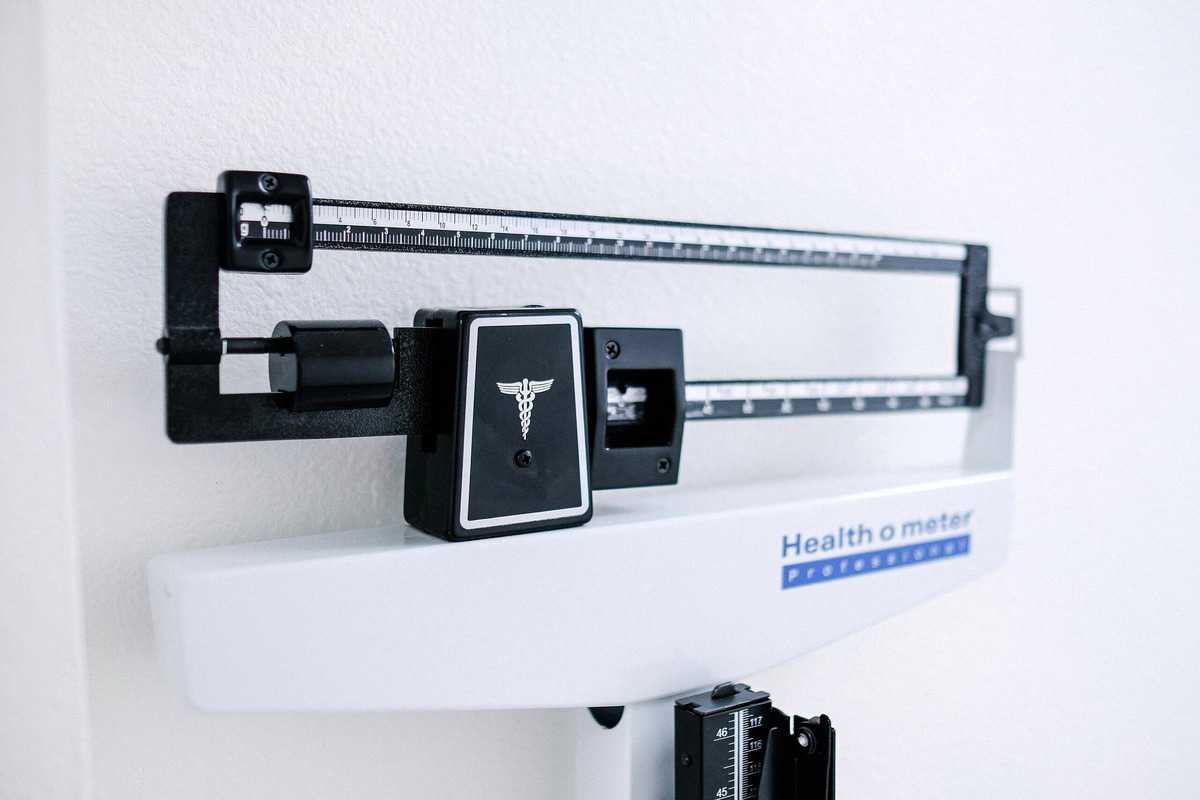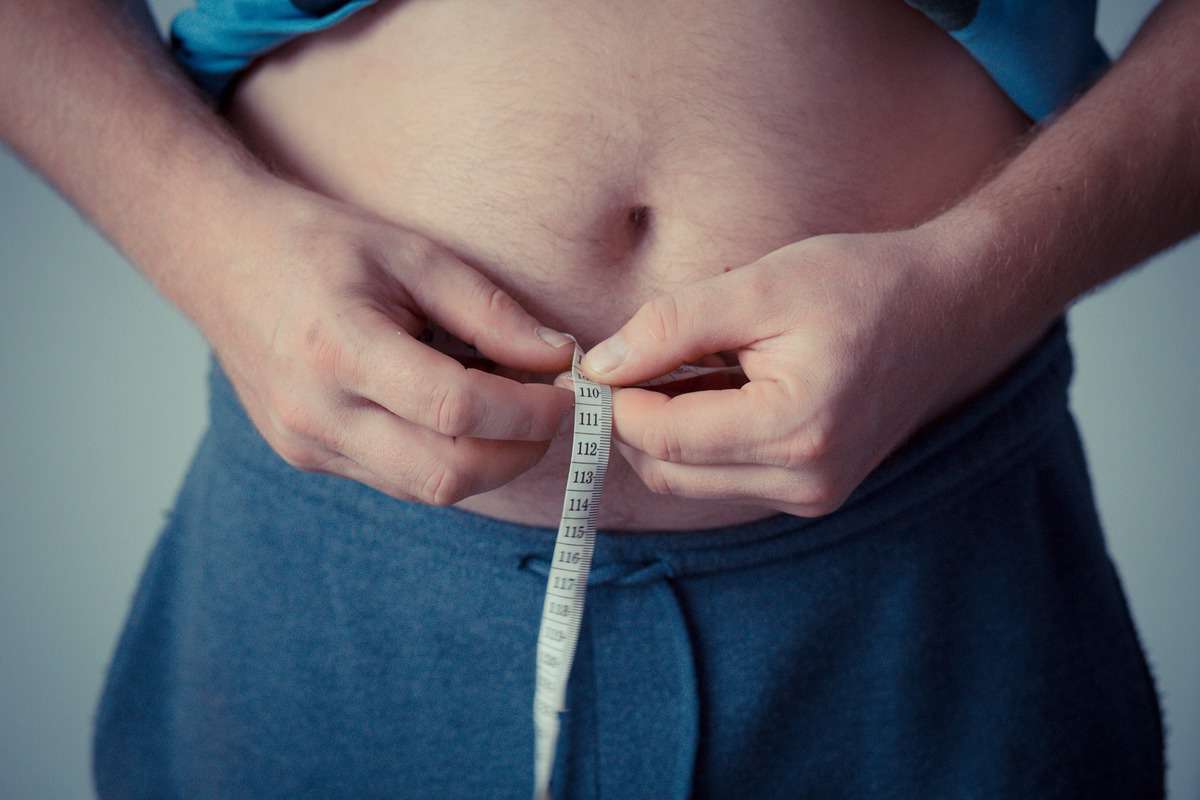We break down a dietitian’s honest thoughts on the controversial reality TV show “My 600 lb Life” and 5 reasons why it causes more harm than good.

If you are new to the chaotic world of “My 600 lb Life”, it is an American reality TV series that showcases the weight loss journeys of individuals living with morbid obesity. The show gives us an in-depth look at how the subjects navigate their lives at their size while documenting their attempts to lose weight in order to qualify for weight loss surgery.
Sounds more or less like any other reality weight loss television show, right? Well, not quite. While “My 600 lb Life” might market itself as “inspirational” entertainment, the unethical treatment of cast members and harmful depiction of people in larger bodies have me feeling a little concerned, and I want to talk about it. So, let’s dive right in and chat about 5 reasons why I think “My 600 lb Life” may be causing more harm than good.
#1 IT PERPETUATES FATPHOBIA and VOYEURISM

It’s no question that fatphobia is rampant in our diet culture riddled world so it is no surprise that it is used as a tool for entertainment purposes, and just the concept of “My 600 lb Life” is evidence of that. Fatphobic curiosity is certainly a driving force behind the popularity of the show, given that it is one of the top-rated shows on the TLC network and has aired a total of 9 seasons plus a follow up “Where Are They Now” series. Plus, when you consider the fact that the weight-loss industry is worth billions of dollars, it’s no shocker that this would translate to major TV ratings.
While TLC has built a name for itself as a network that showcases people who live outside of societal “norms”, “My 600 lb Life” is particularly exploitative and voyeuristic. For instance, participants of the show are strongly defined by their morbid obesity and ability (or inability) to achieve their weight loss goals. Their size and subsequent weight loss is essentially the only aspect of their identity that we get to explore and is the entire focal point of the whole series.
Unlike other shows on the network like “Little People Big World” or “Sister Wives”, for example, we totally miss out on who these people are outside of their obesity. We see them defined as JUST obese people who fit into a discrete category of “success story” or “failure”.

The show also paints a particularly negative and dark portrayal of participants while also exposing the very intimate details of their traumas and day-to-day life struggles. I personally just find this portrayal to be very disrespectful and undignified. With that said, it’s no surprise that the format of the show fuels voyeurism or “hate watching”. I mean, judging by a lot of the reddit threads I’ve seen on the topic, a lot of people aren’t exactly watching it for the heart-warming moments or happy endings.
Furthermore, rather than showing the humanity of the participants of the show – because yes, these are real people with real feelings and real lives – the participants on “My 600 lb Life” are instead portrayed as something that non-fat people should seek to avoid at all costs. This is highly problematic as it perpetuates the weight bias and discrimination that people in larger bodies experience every single day. Psychiatric disorders, like binge eating disorder, require serious medical and psychiatric care.
While you don’t hear the participants’ condition framed this way on the show (likely because it may incite greater empathy from viewers than simply suggesting they are eating themselves to death), it’s very likely that theres a lot of that going on behind the scenes. This makes it even more gross and problematic that producers are profiting off of the exploitation of obese people with significant trauma for the sake of views. Which brings me to my next point…
#2 IT DISMISSES THE IMPORTANT CONNECTION BETWEEN TRAUMA AND OBESITY

A common thread among participants of “My 600 lb Life” is childhood trauma. Whether its sexual assault, violence, drug addiction, broken families etc, it is very clear that the cause of their obesity and reliance on food as a coping mechanism is strongly linked to their childhood. Sadly, this outcome is not uncommon.
Studies suggest that the risk of obesity increases with abuse and childhood trauma. In fact, one large retrospective study found that 66% of participants with obesity experienced one or more types of abuse. Another study found that individuals with a history of childhood sexual abuse are more likely to be hospitalized for psychiatric treatment AFTER their weight loss surgery. This is likely because the surgery removes their primary coping mechanism because they are physically unable to eat larger quantities of food. This may also speak to the fact that obese adults with histories of abuse tend to lose less weight after surgery compared to patients with no reported history of abuse.
On the flip side, weight loss can actually be highly triggering for individuals who have lived in larger bodies for the majority or their lives. They may even view their bodies as a protective suit of armour that has helped to shield them from further abuse. While weight loss is certainly desired in these cases, it can simultaneously cause negative emotions to bubble up to the surface. Consequently, when you remove not only the physical protection (body weight) but also the coping mechanism (food) – you can imagine just how vulnerable and emotionally dysregulated one might feel.

The deep-rooted long-term effects of childhood trauma can be particularly challenging to overcome as it negatively impacts brain development during a very critical period of growth. More specifically, trauma can make the brain less responsive to rewards – meaning that it can inhibit an individual’s ability to experience positive emotions. This can increase the likelihood that abused children will become clinically depressed or rely on unhealthy coping mechanisms as adults – whether that be drugs, alcohol, gambling, or in this case, food.
So, you can understand why gaining enormous amounts of weight does not usually happen simply because someone “loves to eat”. It’s also not a sustainable solution to suggest that someone simply “eat less and exercise more” if the underlying trauma is not being addressed.
This also speaks to the critical importance of unpacking childhood trauma in order to get to the root cause of the eating disorder, start the process of healing, and develop healthier coping mechanisms. It also speaks to the importance of medical professionals being trauma-informed, especially when treating particularly vulnerable populations like this. Without trauma-informed care, weight loss attempts with or without surgery may not be sustainable in the long-term.
While I appreciate that “My 600 lb Life” does shed light on the devastating impacts that childhood trauma can have on obesity, the show could certainly benefit from creating a more empathetic and thoughtful dialogue around these topics. Issues like binge eating disorders, childhood abuse, and depression are not to be taken lightly. Participants of the show who experience these very serious mental health issues deserve to be treated with dignity and care so that they can overcome their trauma and improve their quality of life. This brings me to my next point…
#3 IT PROVIDES INADEQUATE EMOTIONAL SUPPORT

As discussed, there is a clear link between obesity and mental health. In order to achieve any long-term weight loss success, there absolutely needs to be on-going emotional support to help heal the root cause of the extreme weight gain. This needs to be done through an empathetic and compassionate approach from all members of the health care team.
Unfortunately, there often seems to be more of a “tough love” approach going on – particularly from their surgeon, Dr. Now, who’s bedside manner leaves a lot to be desired. Barriers to weight loss, such as intense food cravings and mobility challenges, are common concerns that deserve to be listened to, validated, and addressed with compassion. Shaming and guilt tripping someone for their emotional and physical challenges does nothing but fuel the guilt and shame that they ALREADY feel.
It’s also NOT a helpful solution. In fact, this “tough love” approach often ends up fuelling the cycle of emotional eating that got them in the doctor’s office in the first place. Remember – it’s not a matter of being able to “just stop eating” if you “really wanted to”. Food is their primary coping mechanism.
With that said, if a health professional is inciting an emotional response through guilt and shame, the likelihood of their patient turning to food to cope is actually very high. Unfortunately, the messaging of the show tells a different story and perpetuates the long-standing belief that obese people are lazy and lack willpower and are therefore completely responsible for their body size.
Think of it this way – telling someone with obesity to “just stop eating” is like telling someone with depression to “just cheer up” or someone with anxiety to “just calm down”. Without understanding and treating the root cause of morbid obesity through adequate emotional support, the wound will remain open, and food will continue to be used as a coping mechanism. But do the producers at TLC really care about that?

Well I obviously can’t speak for the sensibilities of each of the producers on the show, or even the network as a whole. But I will point out that there have been 10 lawsuits that have been filed against the production company. The majority of which claim that the show did not provide adequate mental health care for cast members or sensitivity training for staff, purposely caused emotional distress for the sake of ratings, and did not cover medical expenses – which by the way, can rack up to anywhere from 15-35K for gastric bypass surgery.
In fact, according to online news sources, one cast member claimed to have reached out to the production team about being in a dark place during filming and was told to “fake it till he made it”. Not only that, but the show also came under fire in 2020 for continuing to film during the pandemic and putting the cast and crew at risk despite working with a highly vulnerable group. Some might argue that the production team is not particularly concerned with the physical and emotional wellbeing of their cast members. But hey, it makes good television, right?
And that brings me to number 4…
#4. PARTICIPANTS ARE PORTRAYED WITHOUT DIGNITY

One of my biggest beefs with this show is the lack of dignity with which cast members are treated and portrayed. As I mentioned, we get a VERY intimate and uncensored view of their day-to-day struggles. One of which is the mandatory nude shower scene.
For whatever reason, every participant of the show must be filmed in the nude tending to their hygienic needs. Often times, cast members are unable to fit in the shower, or they are bedridden and have no choice but to bathe themselves with a sponge, OR they are bathed outside with a garden hose like you would a dog. Do these scenes really add value to the story? No, it absolutely does not. Do participants really feel comfortable exposing their naked body parts for our own viewing pleasure? I am going to go out on a limb and guess… probably not.
Many cast members have expressed their extreme discomfort and even hatred towards their bodies – some even going so far as to say that they don’t even look at themselves in the mirror! So, you can imagine just how uncomfortable it must feel to be filmed in your most vulnerable state by a whole film crew for the whole world to see.
Unfortunately, opting out of the mandatory shower scene is not an option. Some participants have even come out to say that the production team would manipulate or threaten them if they didn’t comply. For example, former cast member Amber Rachdi was quoted as saying the following about her unethical treatment from the production team:
When I would say I had a boundary I didn’t want crossed, their first reaction was always to threaten to postpone or cancel my surgery. I know the field producers don’t have that power, but they appeared to be used to using this tactic a lot on noncompliant cast members, which is next level unethical. The very first producer I worked with tried to use this when I said I didn’t feel comfortable showering in the nude on camera. Needless to say, it didn’t work, and so there I am, filmed in a pink sports bra and briefers in my opening act. That was my first experience with the company, which is a hell of a rough introduction. – Amber Rachdi (cast member)
When I read things like this I have to think that the production team prefers to treat cast members like some kind of farm animal for our own sick viewing pleasure, rather than as dignified human beings who deserve to be treated with empathy and respect.
#5 IT POSITIONS WEIGHT LOSS SURGERY AS A QUICK FIX

There is no denying that weight loss surgery can be viable solution for folks who are struggling with obesity as research has consistently shown that it can help patients lose anywhere from 50-70% of excess weight. When it comes to individuals with morbid obesity, surgery can certainly make all the difference to improve not only the physical and metabolic consequences of obesity, but also improving their overall quality of life.
However, it is important to note that weight loss surgery is not a one-stop shop for long-term weight loss and it is not without its risks. The rate of weight loss tends to decline a year or so post-op while other patients may actually experience weight regain. One study found that the weight regain rate was around 14% 5 years post-op, and that only 40% of patients maintained at least 30% of their weight loss after 12 years. In addition, weight loss surgery may also cause major complications and nutritional risks. Clearly, this is not a perfect one and done procedure.
Also, weight loss surgery is not brain surgery. If the underlying psychological issues behind morbid obesity are not addressed before and after surgery, the risks may actually outweigh the benefits and put someone on the path to regaining the weight right back. While “My 600 lb Life” has only NOW begun to mildly emphasize the importance of therapeutic work (while also prescribing diets and exercise regimens), I want to strongly emphasize that there is no quick fix for weight loss – whether that’s surgery, a crash diet, or otherwise.
Bottom Line
It goes without saying that morbid obesity is a serious condition with very serious consequences and should absolutely not be exploited. Unfortunately, the approach to “helping” participants of “My 600 lb Life” appears to be doing more harm than good and may not actually be putting cast members on a path to sustainable weight loss and an improved quality of life. My hope is that the producers at “My 600 lb Life” will take the cast members’ health and wellbeing just as seriously (if not MORE seriously) than TV ratings and views. At the end of the day, we all deserve to be treated with dignity and respect, regardless of our body size, and the cast members of “My 600 lb Life” are no exception.
Written by: Giselle Segovia RD, MHSc
More Blog Posts You Might Like
- Pre- and Post-op Diet for Weight Loss Surgery
- Bariatric Surgery Risks and Benefits for Physical & Mental Health
- Dangerous Secrets from “The Biggest Loser”
- Set Point Theory – Can Dieting Change Our Set Point?
Updated on March 8th, 2022

Abbey Sharp is a Registered Dietitian (RD), regulated by the Ontario College of Dietitians. She is a mom, YouTuber, Blogger, award winning cookbook author, media coach specializing in food and nutrition influencers, and a frequent contributor to national publications like Healthline and on national broadcast TV shows.






Barbara ALBERT says
Everything you mention is true if you don’t buy into the fact that to be 600 pounds puts you in a category that excludes you from living a satisfying and meaningful life. You are essentially bed-bound at that weight, cannot gather or cook your food, cannot clean yourself, cannot care for another human being. Any relationships you have will be exploitative, where you will have to use another person to help you see another day. You are essentially on death row.
As obesity is a growing crisis now, this show is vitally important as it could serve as a wake-up call. If you watch closely, none of these people started out huge, they got that way incrementally over 10 to 20 to 30 years. So realistically this could happen to anyone who does not address their obesity asap.
I think the show does a public service and the participants, although one may see them as being victims of the show, are actually doing the only good thing they can do with their lives in the condition they are in. I for one thank them and the producers for their public service,